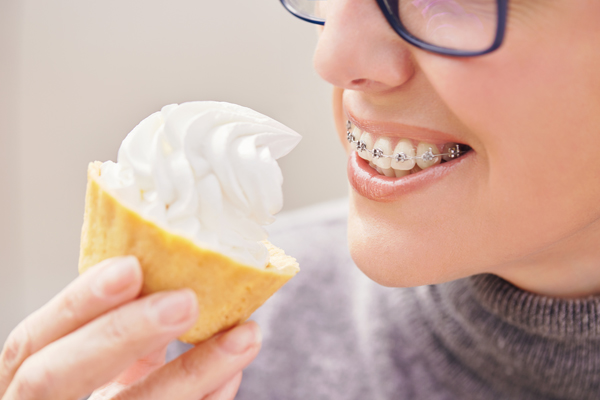 Dental crowns are a type of restoration that can last between 5 and 15 years depending on the material chosen and the quality of care they receive. However, crowns may not provide the long-term durability patients desire if they are not cared for properly through good oral hygiene and protecting them from damage.
Dental crowns are a type of restoration that can last between 5 and 15 years depending on the material chosen and the quality of care they receive. However, crowns may not provide the long-term durability patients desire if they are not cared for properly through good oral hygiene and protecting them from damage.
Tips for getting the most out of your dental crowns
You can protect your dental crowns long-term by brushing your teeth several times each day, making smart dietary choices, avoiding biting down on hard foods and ice, wearing a mouthguard if you struggle with bruxism, and visiting the dentist for regular check-up visits.
Brush your teeth regularly
Brushing, along with good oral hygiene in general, is perhaps the most important aspect of caring for dental crowns. Many patients mistakenly believe that since crowns cover enamel, the risk of complications with the tooth is significantly reduced. However, the tooth can still become damaged through irregular oral care. More notably, the gums and jawbone that support the tooth can become damaged from a lack of brushing, flossing, and mouthwash use.
Be mindful of how dietary choices affect crowns
The food we eat can not only damage teeth enamel, but it can affect gum health as well. It is important to reduce the consumption of sugar and other potentially harmful carbohydrates in addition to practicing good oral hygiene. This can ensure the gums and jawbone are able to remain strong and healthy and prevent the root of the tooth that supports the tooth and the crown from weakening.
Avoid biting down on hard substances
Although the strength of dental crowns depends on the type of material chosen, crowns are relatively strong in general. However, much like enamel, crowns can damage from biting down on hard substances. Among the most notable causes include biting down on hard candy and ice. Other teeth (see below) can also damage the dental crowns prematurely.
Wear a mouth guard to prevent bruxism
A large number of Americans struggle with bruxism, which is also referred to as nighttime teeth grinding. Patients can reduce the risk of damage to their dental crowns from other teeth by wearing a nightguard if they are diagnosed with bruxism. Of course, patients that do not show any signs of bruxism may not need to wear a nightguard, but wearing a mouthguard during certain physical activities may be encouraged.
Visit the dentist for regular check-up visits
Regular check-up visits allow the dentist to detect any early signs of damage to the dental crowns and they can promptly repair the concern before it worsens. In addition, regular check-up visits allow the dentist to check on the patient's gum health, as well.
Schedule a dental crowns consultation with our dental practice
If you are interested in dental crown treatment to improve your oral health, function, and smile, then contact our dental practice today. We can answer any questions you may have and put together a treatment plan that allows you to meet your restorative dentistry goals.
Request an appointment or call Lasting Impressions Dental Group at 832-784-8212 for an appointment in our Houston office.
Recent Posts
A dental crown is a type of dental restoration that is used to avoid additional damage to a tooth’s surface after it breaks, chips, or fractures. Dental crowns are caps that are cemented over broken teeth to preserve their function, form, and appearance. The materials for the dental crown can be metals, ceramics, porcelain, or…
Dental crowns are well-known for their ability to create beautiful smiles, but they can also be used for various other purposes. Dental caps are used not only for smile makeovers but also to restore teeth that may otherwise be extracted due to gum disease or cavities. Dentists and their patients often prefer crowns because they…
There are certain steps that dentists follow to ensure the safety and quality of dental crown treatment. This review discusses the steps that are typically involved with the dental crown procedure.The dental crown procedure typically involves an evaluation of the damage, followed by trimming the tooth and the placement of a temporary crown. A dental…


